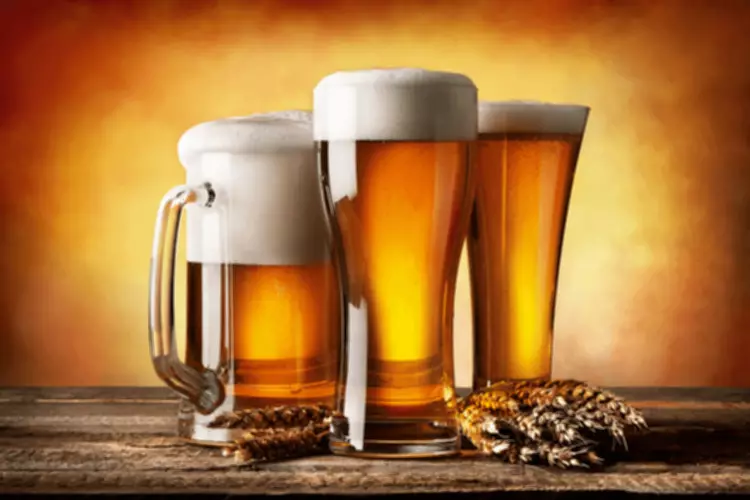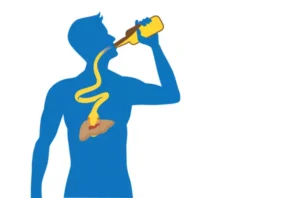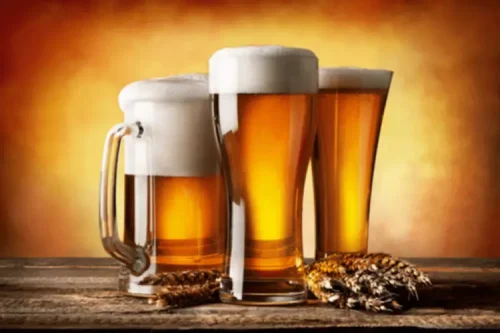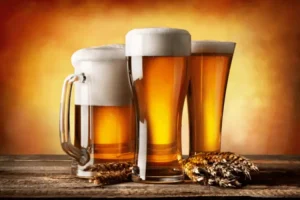
He first had me think about all the things I lost due to my alcohol or drug use. So I did, and while I was mentally compiling that list I thought, “Damn, could all of this hurt and pain have been avoided if I had not been drinking or high? However, even though I had all these terrible things going on, I continued to drink thinking it’s not that bad or it would get better. This is the powerless aspect of the disease – I was powerless over whether I drank or used.

RESTORED HOPE COUNSELING Blog
I always say that if I could do this alone, I wouldn’t be sitting here in this proverbial church basement at 7 AM on a Sunday morning. We need to be accountable to each other to stay sober in mind, body and spirit. I’d been involved in the sober community on and off for years. Yet I’d never heard someone with 20+ years summarize powerlessness so elegantly. Our primary purpose is to provide a forum for discussing the A.A.
- None of us had much structure in our week and so we could treat every day like a weekend.
- When we feel powerless, we may feel hopeless, helpless, and stuck.
- Worldwide, alcoholics, addicts and treatment professionals embraced the Twelve Steps, and more than 35 million copies of AA’s Big Book have been distributed in over 70 languages.
- In essence, in Step One you’re making a conscious choice to recognize out loud you have a problematic relationship with substances.
- No matter how many times we tell ourselves, “This time will be different,” the mental obsession drives us back to the same destructive patterns.
Step 1 of AA: “Powerlessness”, the First of the 12-step Journey
I woke up the next day without a hangover and a fresh start. Meeting, trust that little feeling in your gut that you need help. Alcoholics Anonymous is a rigorous program—a program of honesty, of showing up for meetings, of doing service, of being accountable for our behavior. Admitting we are powerless over alcohol makes it that much easier to dedicate ourselves to our recovery. When no alcohol or other chemicals bathe the addicted brain, its motivation to return to use is thwarted. The result is a chronic sense of need, restlessness, irritability, and discontent.

How Fellowship in Alcoholics Anonymous Provides Strength
These substances literally rewire brain function, making the need to satisfy a craving take prominence over everything else in life–regardless of the consequences. The 1st Step is a deeply personal moment of surrender, but it’s not one we take alone. The community we find in Alcoholics Anonymous (AA) plays a vital role in helping us admit we are powerless over alcohol and begin the journey to recovery. When we attend an AA meeting, we discover a fellowship of people who understand the struggles we face and offer strength through shared experiences. This sense of belonging is critical in rebuilding a person’s life and reclaiming a person’s identity beyond addiction. The concept of powerlessness in Alcoholics Anonymous (AA) is at the heart of the 1st Step and a transformative realization in twelve-step recovery.
- Before there was no motion, no beauty, no progression, there was just me in my mud puddle hangover.
- Step 1 of AA requires a great deal of strength and courage as you accept that alcohol has taken over your life.
- Before speaking, the participant is required to state his or her first name and say that he or she is an alcoholic.
Admitting we are powerless over alcohol and other drugs means recognizing that our lives are no longer manageable under the control of addiction. This acknowledgment Halfway house is the key to breaking free from substance use disorders and beginning a recovery program that offers hope and healing. While admitting powerlessness over a substance may seem at odds with efforts to hold addicts responsible for their behaviors, the opposite is true.
- You may have noticed your life in chaos—maybe you’ve lost your home, your job, your family, your possessions, or your self-respect.
- The Twelve Steps showed me that to stay sober, I need to stay under God’s direction—24 hours a day.
- Many peer recovery groups use examples of powerlessness in sobriety to help participants accept themselves for who they are.
- So you understand the benefits of Step One and of admitting powerlessness, but the next question then is why is such emphasis placed on being reliant on others to get yourself out of addiction?
- Hanley Center is a well-known care provider offering a range of treatment programs targeting the recovery from substance use, mental health issues, and beyond.
- When we allow our fears to dictate our decisions, we suffer.

“We admitted we were powerless over alcohol (or our addiction) – that our lives had become unmanageable.” Step One how am i powerless over alcohol is the foundational step in both Alcoholics Anonymous (AA) and Narcotics Anonymous (NA). It is the starting point of the 12-step recovery process and sets the stage for acknowledging the depth of addiction and the need for help. In this blog, we will explore Step One in AA and NA, emphasizing its significance and how it serves as a powerful catalyst for change and recovery. Step 1 of AA can be one of the most difficult on your journey to sobriety.

- Pay attention to the statements below that sound familiar to you.
- Sometimes alcoholics keep their desire to drink secret because they’re ashamed or think that deciding to quit drinking means they aren’t supposed to be tempted.
- Powerlessness is a normal and human response to stress, but it can also be a sign of depression or anxiety.
- A stepping stone to safer ground, a hot potato to get off my hands, I know not to stay there long because at Step One, I’m only heading towards the solution – I’m not there yet.
- If I can just get my head to Step One, I’ll be ok because once there, I lay down the frustrations like so many ugly suitcases and I go to Step Two where I remember that God, a Higher Power, exists.
I remember the first time I attended a 12-step recovery meeting. I was there to listen to one of my clients tell her story at a treatment center. This was many years before I ever came to realize that I myself needed to be a member of the same fellowship. I recall thinking how nice it was for all of these people to take time out of their day to bear witness to this woman recounting the horrors of her past and her substance abuse. Little did I know that years later I would be stuttering out my name in a packed 12-step meeting in Amsterdam in 2007.
There is no ads to display, Please add some







